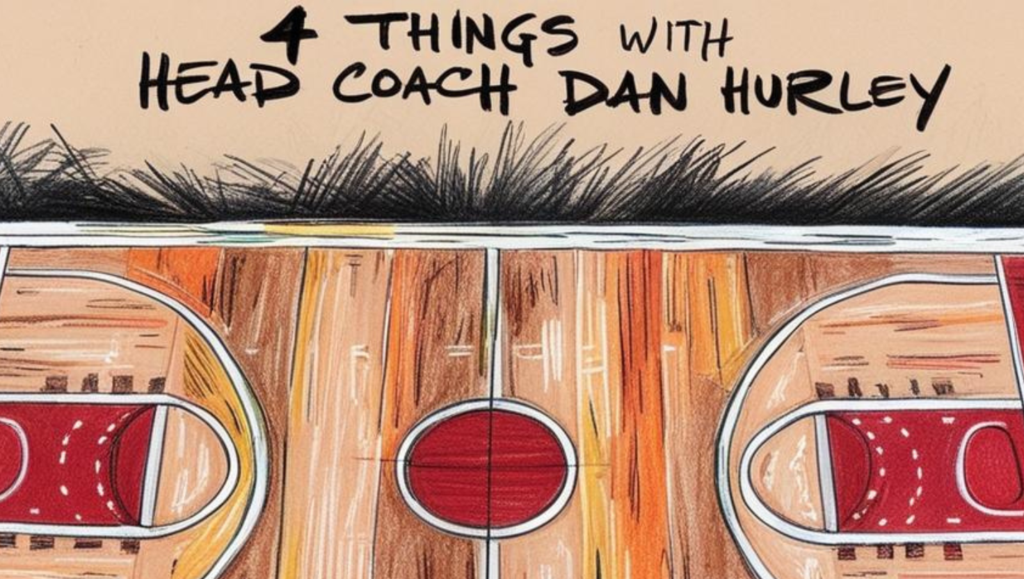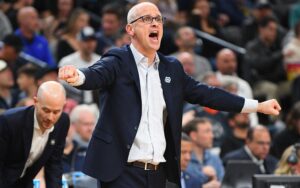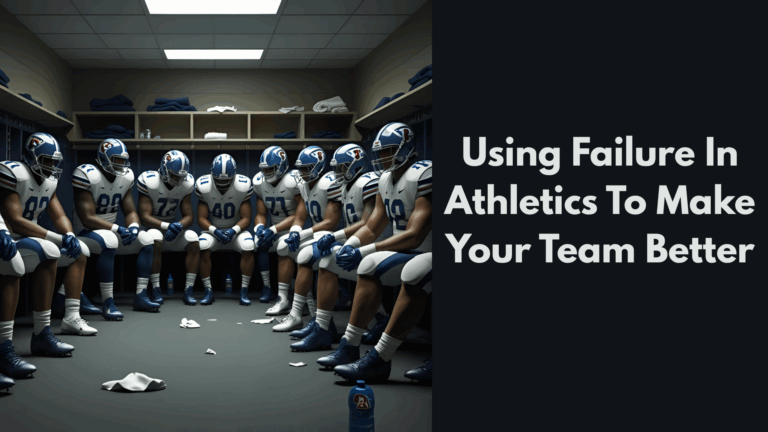
Dan Hurley, Head Coach of the U Conn Men’s Basketball Program, is a man driven by intensity, legacy, and a relentless pursuit of excellence. In a revealing 60 Minutes interview aired on March 9, 2025, Hurley offered a raw glimpse into his coaching philosophy, personal struggles, and family dynamics.
Here are my four things and takeaways from the conversation that shed light on the man behind the madness.
1. A Method to His Madness
Hurley is not your typical “everyone gets a trophy” coach. For him, basketball is a zero-sum game—there’s a winner who earns temporary relief and a loser plunged into what he described as “a hell hole of sufferings.” This high-stakes mindset was on full display when he recounted a tie game that went into overtime in the Hawaii tournament earlier this year.
After receiving a technical foul, his team, UConn lost. Rather than shy away from such moments, Hurley embraces them, admitting, “When I get into it with an official, I will say or do anything that I think will give me and my team an advantage.” His fiery approach isn’t chaos—it’s calculated, a method aimed at igniting his players. Last year’s NCAA March Madness tournament, where no opponent came within 13 points of his squad as they went on to become champions, proves there’s substance behind the intensity.
2. Success Isn’t Just Banners
Despite his competitive edge, Hurley is being learning, and being challenged to temper his definition of “success.” Former U Conn Head Coach Gene Auriemma told him after the Hawaii debacle, “If the only outcome that makes you a successful coach is when you hang a banner, you should get out immediately—it ain’t gonna happen every year.”
This is TREMENDOUS advice! I remember in my early years of being a Head Football Coach, I most definitely put winning ahead of everything else. It’s my biggest regret in my career of coaching. 27 and 28 year old Head Coach Fore was too immature to look beyond the results of Friday night, and I regret that.

Initially, Hurley balked at this advice, thinking, “What the hell else am I in this for?” But Auriemma’s wisdom stuck. He urged Hurley to find joy in relationships with his players, a lesson that’s reshaped his perspective. Still, the hunger persists.
When asked if a season without winning three straight titles could be successful, Hurley said, “No, not totally. Because it means I didn’t put together a team who could do it.” He can live with falling short, but he’ll always see it as “a failure”—a duality that fuels his drive.
So, maybe he hasn’t learned the lessons that Auriemma has been trying to teach?
3. A Family Legacy and Personal Redemption
The Hurley name carries weight in basketball. His father, Bob Hurley Sr., won 28 state titles as a Head High School Coach in Jersey City, while his brother, Bobby, secured back-to-back NCAA championships at Duke. But Hurley’s own playing career as a point guard at Seton Hall was a different story.
“I failed to live up to the Hurley basketball standards, it caused a lot of pain,” he confessed. That disappointment lingers—“My career eats up at me still, there is an embarrassment about how that went.” Coaching has become his second chance, a way to reclaim his place in the family legacy. “It’s not me vs. Dad as a coach or Bob with what he did in basketball,” he said. “But we will see what the Hurley family contributes to basketball. We will see if we are one of the best basketball families of all time.” For Hurley, every game is a step toward that answer.
4. Leaving the Game at the Gym
This was MY favorite part of the interview because I had to learn these tough lessons from my wife early on in my coaching career! I’ll never forget moping around the house early on Saturday morning. We had two young kids who were 4 and 2. My wife said “Guess what? Those two kids out there, they don’t care at all that you lost last night. They don’t even understand it. All they want right now is to play with their daddy. You’ve got 15 minutes more to mope, then come out here and play with your kids.”
She was right. That short conversation refocused my entire career as a “coach/dad.”
Hurley’s intensity doesn’t follow him home—by design. “I’m not allowed to take it home,” he said, crediting his wife, Andrea, for keeping him grounded. After a tough loss, he might spiral into a funk, but Andrea’s blunt honesty—“I love you, but get over yourself”—snaps him out of it. She admitted to knowing little about basketball (“I have no idea what a screen is”), which Hurley finds refreshing.

“If I came home to someone who wanted to talk about our lineup, it would never work,” he laughed. Instead, he starts each day in his basement shrine—surrounded by pictures of animals, his Bible, and superheroes—to clear his head. It’s a deliberate separation that preserves his sanity amid the chaos of coaching in an era where “50% of my roster or more is considering going into the portal” and players often know their next team and NIL deals before the season ends.
Dan Hurley’s *60 Minutes* interview paints a portrait of a coach who thrives on pressure, wrestles with his past, and balances legacy with personal growth. His methods may seem mad, but they’re rooted in a deep love for the game and a desire to leave an indelible mark—on his team, his family, and basketball history.
Chris Fore, a veteran coach and Athletic Director from Southern California, is now a Principal. He has written four books and produced coaching manuals, available at EightLaces.org. His schools set championship records and excelled in sportsmanship and academics. He has a Master’s in Coaching and Athletic Administration, he’s a Certified Athletic Administrator and past President of the California Coaches Association (2018–2021). A speaker and contributor to sports media, he’s also an expert witness in athletic lawsuits. Follow him on X!


